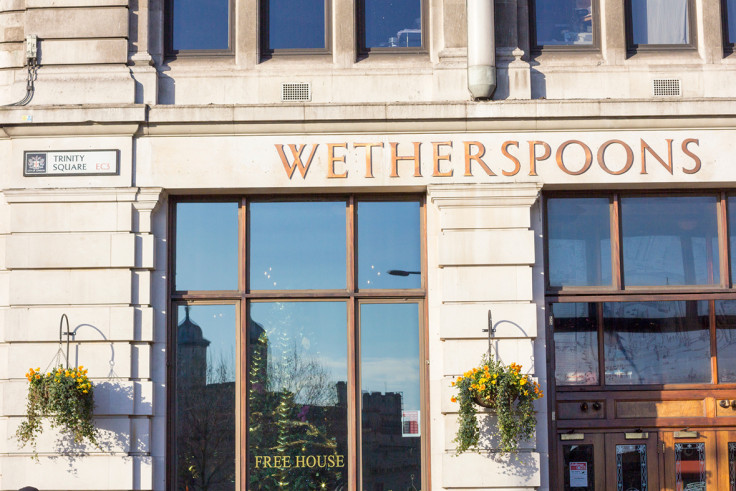EU bosses should take a 'wise-up pill' over Brexit says Wetherspoon boss
Tim Martin warns pub operator could have to switch to suppliers from outside the EU in the future.

JD Wetherspoon's founder and chairman Tim Martin has said European Union bosses should take a "wise-up pill" over Brexit, warning that the chain could have to switch to suppliers from outside the bloc.
Martin, a vocal supporter of Brexit, said moving to non-EU suppliers would not be detrimental to the company's operations in the UK or to the British economy as companies will be able to switch to suppliers "representing the 93% of the world's population which is not in the EU".
However, ditching European suppliers in favour of their counterparts from outside the 28-country bloc would be "highly damaging to the economy of the EU" said Martin, who still owns 30% of Wetehrspoon.
He said the attitude of the "unelected oligarchs" with whom Britain has to negotiate its departure from the EU were encouraging companies such as Wetherspoon to look for suppliers from outside the EU.
"Wetherspoon is extremely confident that it can switch from EU suppliers, if required, although we would be very reluctant to initiate such actions," the pub operator's founder said on Friday (15 September).
"It is my view that the main risk from the current Brexit negotiations is not to Wetherspoon, but to our excellent EU suppliers – and to EU economies."
EU leaders, Martin added, should take a "wise-up pill in order to avoid causing further economic damage to struggling economies like Greece, Portugal, Spain and Italy – where youth unemployment, in particular, is at epidemic levels".
The Wetherspoon chairman warned there seemed to be little genuine appetite for a free trade deal from the Brussels bureaucracy.
"EU companies are, paradoxically, reliant on the goodwill of UK consumers, who are likely to prefer tariff-free goods in the future from non-EU countries, which are generally in favour of free trade, rather than deals with companies which are subject to the diktat of those who wish to punish the UK," he explained.
Martin's comments came as the pub operator reported an increase in full year profit before tax, as sales and revenue also edged higher on the back of a strong summer.
In the year to the end of July, the FTSE 250-listed company reported a 15.6% year-on-year increase in pre-tax profits to £76.4m, while profits would have been £102.8m excluding exceptional items.
Revenue rose from £1.60bn to £1.66bn, while like-for-like sales climbed 4% and the company confirmed it will maintain its full year dividend of 4p per share.
However, Martin warned the company was unlikely to sustain the performance over the course of the year.
"This is a positive start, but is for a few weeks only – and is very unlikely to continue for the rest of the year," he said. "Comparisons will become more stretching – and sales, which were very strong in the summer holidays, are likely to return to more modest levels."
© Copyright IBTimes 2025. All rights reserved.






















